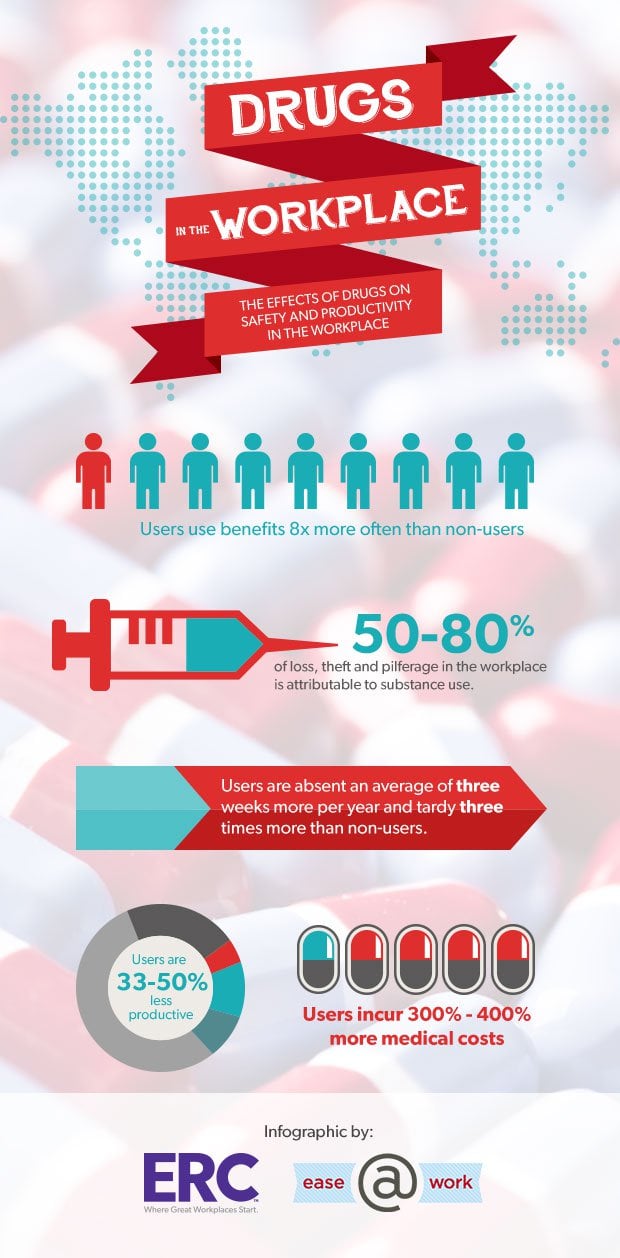
When a company integrates a drug-free policy with an organization’s risk management, health management and/or psychological health workplace strategies, it provides a competitive advantage for any business. We spoke with Patrick Gaul, manager of account services at ease@work, about the benefits of having a drug-free workplace.
Gaul indicated that the Ohio Bureau of Workers Compensation (BWC) is an excellent source for drug-free information, regardless of whether or not a company is looking for a BWC discount. According to the BWC, a strong drug-free policy has the following positive impacts on a business:
- Increased safety
- Improved productivity
- Reduced theft
- Reduced absenteeism / tardiness
- Reduced healthcare cost
- Improved morale
“Specific to safety, the Ohio BWC says that up to 40% of industrial fatalities and 47% of industrial injuries have alcohol and other drug involvement,” says Gaul. “Users are also 3-4 times more likely to be involved in workplace accidents, resulting in injury of a co-worker 40% of the time.”
Some other startling statics are that users are five times more likely to file a workers’ compensation claim as well as five times more likely to have an accident off the job.

If safety and productivity are concerns in your workplace, it is a good idea to look at your drug-free policy, says Gaul. The Ohio BWC does offer an option to participate in its program to earn a discount, but regardless if you choose to participate for that reason, Gaul says you should consider the following program elements taken from the Ohio Drug Free Safety Policy (DFSP):
- Written substance policy
- Supervisor training
- Employee education
- Drug and alcohol testing
- Employee assistance
Gaul explains a time when he recently spoke with an ease@work customer about improving their substance abuse policy. Their policy included pre-employment and reasonable suspicion testing but they were still concerned about whether they had impaired employees.
“They decided to add random testing in order to strengthen its culture of a safe workplace, which allowed the company to move up from the Ohio BWC DFSP basic level to the advanced level. This is an interesting example of safety driving the process rather than the discount. If your reasons for strengthening or starting a drug-free program are not to improve safety and productivity, you may find that the discount is not high enough to justify the costs. If you are primarily interested in improving in these areas, you will find that any efforts put into enhancing your drug-free policy are well worth the costs,” says Gaul.
The Ohio BWC is a good resource for starting or improving a drug-free policy. If you already have an employee assistance program in place, companies should consider this as another invaluable resource that can provide guidance and direct assistance on all 5 elements.
Compare your policies and benefits to other companies.
Access ERC’s Policies & Benefits Survey to benchmark your company.
